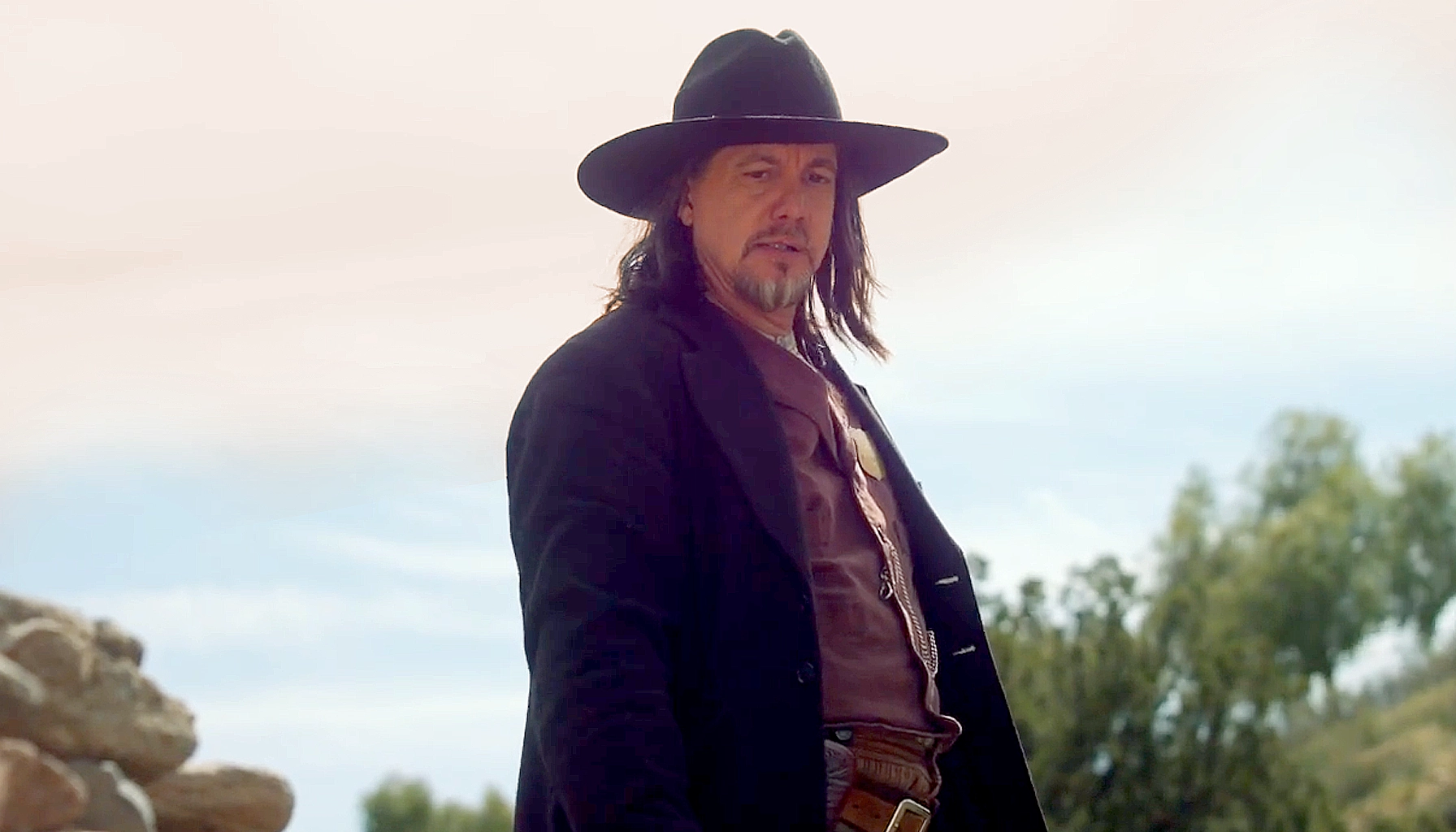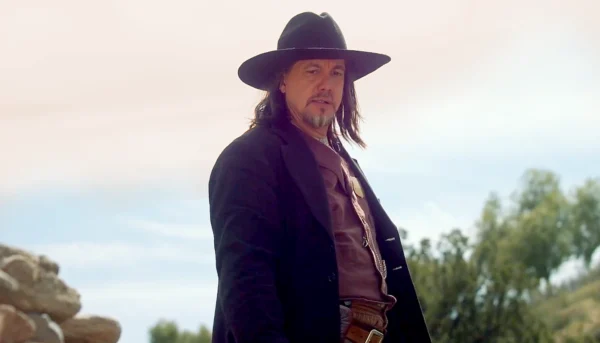
"Wild West Chronicles" (2024)
The Saga of Wild West Chronicles (and Why You Should Care)
Once upon a tumbleweed, in the dusty corners of American cable television, there exists a curious beast called Wild West Chronicles — a docudrama series on INSP that gallops between myth and history with reckless charm. It follows the real-life exploits of lawman-turned-journalist Bat Masterson as he revisits the most notorious legends of the Old West, scribbling their truths into immortality while keeping his hat firmly on his head. Produced by MorningStar Entertainment and helmed by a rotating posse of directors like Michael S. Ojeda and Jim Orr, the series has earned a loyal audience for its cinematic re-creations and historical storytelling.
The Battle of Stone Corral — Season 4, Episode 12 (November 20, 2024)
Cue the desert winds and ominous guitar twangs. In The Battle of Stone Corral, we meet George Contant, a man freshly released from prison and seeking to reform his life. Unfortunately, he chooses to live with his brother John Sontag and the ever-persuasive ranch owner Chris Evans — two men with a less-than-legal idea brewing. Their grand plan? Rob the Southern Pacific Railroad. What could possibly go wrong?
As it turns out: everything. The robbery yields little reward, their luck evaporates faster than whiskey on a griddle, and soon the law closes in. A posse of U.S. marshals storms their hideout, bullets fly, and one officer falls in the line of duty. Contant and his outlaw companions flee into the hills, sparking one of the most famous manhunts in California history.
Cornered at the infamous Stone Corral, the fugitives dig in for a final stand. Surrounded, desperate, and outgunned, they fight fiercely against lawmen who refuse to yield. The air fills with gunpowder, echoing moral reckonings, and the unmistakable aura of justice on horseback. Years later, a reformed Contant seeks out Bat Masterson himself, eager to set the record straight — or at least tell it in a way that doesn’t make him look entirely like the bad guy.
Marshal George Gard Rides In
And then — through the dust, through the chaos — steps Marshal George Gard, played by D.C. Douglas. His arrival is calm, steady, and brimming with the kind of authority only a man with a resonant baritone and impeccable mustache can command. Gard is the episode’s embodiment of moral gravity — a man who weighs the law against mercy while ducking bullets and dodging bad decisions.
Douglas delivers a performance that blends grit with subtle humor. Known for his roles in Resident Evil, Mass Effect, and JoJo’s Bizarre Adventure, he brings that trademark composure and voice that could stop a stampede mid-stride. His Marshal Gard doesn’t grandstand; he observes, calculates, and acts — the kind of marshal you’d trust to escort you through a gunfight or negotiate peace over a stiff drink. His quiet intensity lends credibility to the chaos and gives the episode its moral spine.
Behind the scenes, Douglas has noted the production’s commitment to authenticity — real firearms (occasionally jammed ones), genuine period costuming, and sun-drenched locations that make every frame look plucked from a sepia photograph. The result is an episode that feels both historical and immediate, cinematic yet grounded in the human choices that defined frontier justice.
The Cast of Guns, Grit, and Regret
The ensemble cast rides strong in this tale of redemption and ruin:
- Jack Elliott as Bat Masterson — the show’s narrator, chronicler, and resident lawman-turned-storyteller.
- Matt Gall as John Sontag — the scheming brother whose bad decisions set the tragedy in motion.
- Ben Burton as Cash — the reluctant accomplice with questionable math skills.
- Skye Coyne as Molly — moral clarity in a dust storm of chaos.
- Andrew Fultz as Detective William Smith — persistent, brave, and determined to bring order to the West.
- D.C. Douglas as Marshal George Gard — the embodiment of stoic law and voice-of-reason authority.
Each actor carries the balance between realism and dramatization, staying faithful to the series’ tone — a historical reenactment infused with modern pacing and tension. The chemistry among the cast is effortless, with Douglas’s grounded portrayal serving as a stabilizing force amid the tumult.
The Minds Behind the Mayhem
Wild West Chronicles is the brainchild of MorningStar Entertainment, executive produced by Craig Miller, Dale Ardizzone, David Cerullo, Doug Butts, Gary Tarpinian, and Paninee Theeranuntawat. The creative team’s mission has always been to reimagine the Wild West not just as a backdrop for gunfights, but as a crucible of moral conflict — where justice, pride, and regret clash like saloon doors in a windstorm.
The series combines meticulous research with dramatic re-creations that elevate historical events into cinematic parables. Each episode threads real-life accounts through the perspective of Bat Masterson’s journalism, giving audiences a blend of education, entertainment, and the occasional gunshot echoing into moral reflection.
Why This Episode Stands Out
“The Battle of Stone Corral” stands as one of the most visceral episodes of the season. It’s a meditation on choices — how the line between redemption and ruin can shift with a single shot. The story of George Contant and his brother is not simply a tale of crime; it’s an exploration of loyalty, consequence, and the futility of running from one’s past.
Meanwhile, D.C. Douglas’s Marshal Gard grounds the chaos. His presence transforms the episode from a mere shootout into a character study on justice itself. The stoicism, the authority, the world-weary patience — it’s the type of Western performance that would make Gary Cooper tip his hat in approval.
Final Thoughts from the Frontier
Wild West Chronicles continues to carve its own niche in the vast television prairie by merging history with humanity. “The Battle of Stone Corral” delivers on all fronts — gunfire, redemption, betrayal, and a marshal whose every glance speaks volumes.
If you crave a story where the stakes are mortal, the dust never settles, and the law rides tall (and voiced by a man who sounds like he’s narrating destiny itself), this is the episode to hitch your wagon to.
And remember: in the Wild West, truth always travels slower than a bullet — but it hits just as hard.









